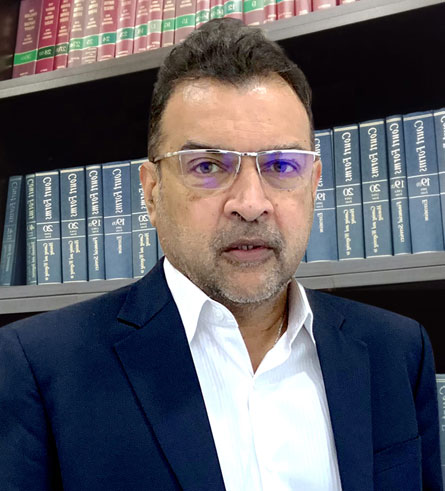Understanding Collaborative Divorce
WHAT IS COLLABORATIVE DIVORCE?
Collaborative divorce is the legal practice of settling matrimonial issues such as child custody and
asset division outside the court and through mediation and negotiation. Unlike litigation, this process
provides an interest-based and client-centric approach, which enables both parties, with the help of
their attorneys, to reach an agreement that meets their needs.
WHAT IS THE AIM OF COLLABORATIVE DIVORCE?
The primary aim of collaborative divorce is to avoid court litigation altogether, as well as the
physical, emotional and financial burdens that come with it. With the assistance of a Collaborative
Family Practice (CFP) lawyer, estranged couples are able to explore and exhaust all options to resolve
issues in a way that is beneficial for the entire family, especially if children are concerned.
Joint custody order
Under the joint custody order, both parents are given equal responsibility and right over the matters of
the child. They must also communicate and consult with each other, and must reach an agreement when
making vital decisions concerning the welfare of the child. When agreement is not possible, each parent
may apply to the Court for a determination of the disputed matters.
HOW DOES THE COLLABORATIVE DIVORCE PROCESS WORK?
Collaborative divorce requires each party to hire an attorney to represent him/her. The choice of lawyer
is crucial to get positive outcomes. Ideally, one should hire a family law expert who is not only
accredited by the Singapore Mediation Centre, but collaboratively-trained, particularly in the area of
dispute resolution.
The collaborative divorce process officially starts once the couple and their respective lawyers sign
the Participation Agreement (PA), which states both parties’ commitment to avoid court litigations or
any legal threat. More importantly, the PA entails the voluntary and full disclosure of all required
information from both parties, as well as their commitment to work together in a civil, objective and
respectful manner to arrive at a mutually beneficial settlement.
The whole collaborative divorce process takes place over a series of face-to-face, 4-way meetings, which
are typically scheduled 2 to 4 weeks apart. These meetings serve as a venue where both parties can
present their issues and with the assistance of their lawyers, negotiate possible resolutions. In an
interdisciplinary system of collaborative divorce, meetings may be attended by different professionals
such as a financial adviser and child expert in order to assist with the case.
Once the parties involved have reached a full agreement, it is up to the lawyers to draft the final
settlement, which will then be processed and filed with the Court. Upon approval, this draft becomes a
legally binding Court Order.
WHY CHOOSE COLLABORATIVE DIVORCE PROCESS WHEN THE MATTER CAN BE SETTLED AT COURT?
Collaborative divorces are non-adversarial, and less time-consuming, costly and stressful compared to
traditional litigation proceedings. In addition, this process enables both parties to voluntarily come
to terms with arrangements that best benefit the interests of the whole family without any pressure from
legal threats or the Court.
CAN THE PARTIES DECIDE ON ALL MATTERS DURING THE COLLABORATIVE DIVORCE PROCCESS?
Yes. In a collaborative divorce, the affected parties are given full rein on how to resolve issues
concerning every aspect of the divorce, from child custody to property division. The attorneys present
are only there to provide legal advice and help couples exhaust all options when settling disputes.
IS COLLABORATIVE DIVORCE BETTER THAN THE TRADITIONAL DIVORCE PROCESS?
While a collaborative divorce does pose certain benefits, especially in terms of fostering a good
relationship between the two parties, it is not for everyone. There are cases when couples are unable to
come to a mutual agreement, and will require Court processes to settle disputes. A collaborative divorce
is only ideal if both parties can make a commitment to fully cooperate and effectively communicate with
each other within a safe and respectful environment.
WILL I STILL HIRE A DIVORCE LAWYER?
As mentioned earlier, a collaborative divorce is not for everyone. Couples who are considering divorce,
annulment or separation should still hire a divorce lawyer to determine whether a collaborative divorce
or a traditional litigation procedure is suitable for their case.
When faced with a legal concern, it is key to have an experienced and supportive law firm on your side. Godwin Campos LLC is an award-winning law firm in Singapore and we offer free, non-obligatory first consultations to help you evaluate your situation better.
Why Us?
Because you get immediate cost-effective advice & guidance based on a wealth of expertise as our Mr Campos, with more than 30 years of experience, personally oversees every matter. This starts from the very 1st consult itself.
We will handhold you. Reach out - drop us a line or make that call.
Need Quick Legal Advice On Divorce & Litigation?
We Offer Free 1st Consultation.
We Offer Free 1st Consultation.
Our Office Address
16 Raffles Quay
Hong Leong Building
#27-05 Singapore 048581
Hong Leong Building
#27-05 Singapore 048581
Our Phone Numbers
Tel: +65 6535 1306
Fax: +65 6542 2018
Fax: +65 6542 2018
Our Opening Hours
Mon - Fri: 9am - 6pm
Sat*: 10am - 12pm
*Strictly By Appointment Only
Sat*: 10am - 12pm
*Strictly By Appointment Only









